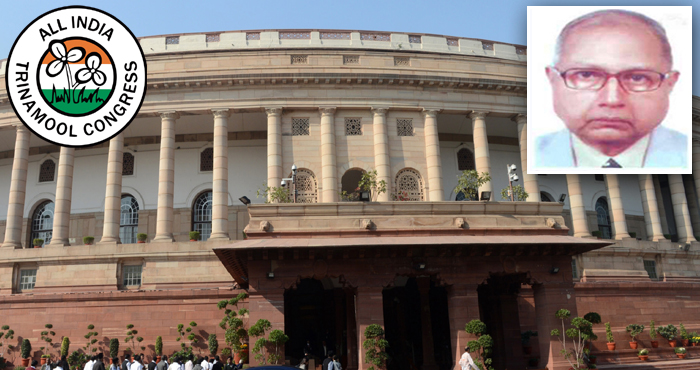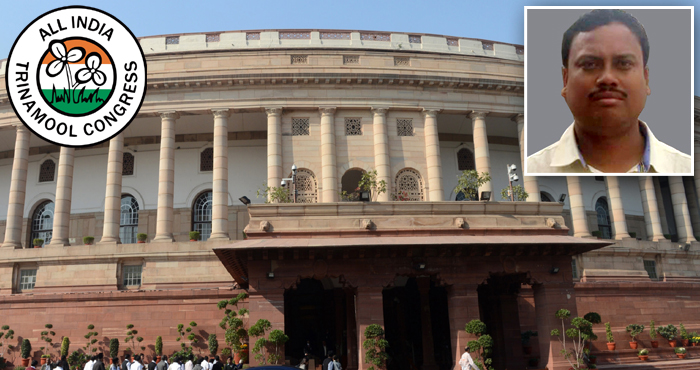FULL TRANSCRIPT
The HIV and AIDS (Prevention and Control) Bill aims to provide essential support to national AIDS control programme arresting new infection and thereby achieving the target of ending the epidemic by 2030 according to the sustainable development goals.
India has the third largest HIV epidemic in the world after South Africa and Nigeria.
As per the report of 2015, there are 21.17 lakh persons estimated to be living with HIV in India, out of which 6.54 percent accounts for children. The adult prevalence is in the range of 0.3 percent of which around 40 percent is women and estimated 48 thousand population died from AIDS related instances in 2015. However, at present India’s HIV epidemic is slowing down. In 2015, 44 percent of adult were eligible for antiretroviral treatment (ART) rising from 36 percent in 2013.
Despite the rise, in the number of people on ART remain slow. The introduction of new 2013 World Health Organisation treatment guideline has more people eligible for antiretroviral treatment. Focussing treatment at patients is to be the priority area.
The Bill highlights the provisions to safeguard the rights of the people living with HIV and affected by HIV. It also lists various grounds on which discriminations against HIV positive persons and those living with them is prohibited.
These include the denial, termination, discontinuation or unfair treatment with regards to employment, educational establishment, healthcare services, residing and renting property, standing for public and private office and provision of insurance. The requirement for HIV testing as requisite for obtaining employment or accessing healthcare is also prohibited. The Bill seeks to provide legislative framework of the existing state of non-discrimination against people living with HIV and AIDS.
Alongside, the aim is also to enhance the legal accountability and establish formal mechanism for the grievances. Under this Bill, every HIV infected or affected person below the age of 18 has the right to reside in shared household and enjoy the facilities of household. The Bill prohibits any individual from publishing information and advocating feeling of hatred against HIV positive persons and those living with them. The Bill provides for the guardianship of minors. The Bill requires that no person shall be compelled to disclose his HIV status, except with the informed consent and if required, by a court order.
According to the Bill, the Central and State Governments should undertake measures to
- prevent the spread of HIV and AIDS,
- provide antiretroviral therapy and infection management of persons with HIV and AIDS,
- facilitate their access to welfare schemes, especially women and children,
- formulate HIV and AIDS education and communication programmes that are age-appropriate, gender-sensitive and non-stigmatising, and,
- create guidelines for the care and treatment of children with HIV and AIDS.
The Bill makes the provision for the appointment of an ombudsman by the State Government. Cases relating to HIV positive persons shall be disposed off. Most of the recommendations made by the Standing Committee on Health and Family Welfare were undertaken into the Bill. Some amendments were suggested during the discussion in the Rajya Sabha. Medically advised safeguards and precautions should be adopted to minimise the risks of infection from HIV positive persons, which shall not amount to discrimination. Central and State Government should formulate schemes to address the needs of all protected people under the Bill as opposed to only the HIV and AIDS-affected women and children. In the case of an emergency, the ombudsman will pass an order within 24 hours; otherwise the ombudsman shall pass an order within a period of 30 days.
The Bill, in a way, is a landmark Bill as it extends the first-ever explicit legal endorsement in the case of a specific health condition, for people living with HIV and AIDS in our country. There cannot be two opinions about the exalted aims of the Bill. However, while the Bill and the amendments take important steps in the struggle of tackling HIV and AIDS, there are certain limitations which create further gaps in catering to the main aims of the Bill. The Bill brings a rights-based approach to AIDS treatment, making it imperative for both Central and State Governments to provide treatment as far as possible.
Number one, under Section 14 (10), though the Bill lays down that treatment is the right of the patient, it restricts its reach to convert it into a legal right. Thus a person with HIV and AIDS denied treatment cannot generally initiate any legal proceedings against government authorities.
Number two, the prevention programme does not look at how women’s bodies are different from men. Sexual violence heightens the risk of HIV transmission and infection, travelling from mother to child during pregnancy or breast-feeding. These are factors that deserve more attention.
A UNICEF report says that only 23% of pregnant women living with HIV undertook antiretroviral treatment in 2009 because of factors like social customs and family restriction. Even its report in 2015 highlights that 39.5% of HIV infected adults in India were women and that this was a growing proportion. While two years ago, it was reported that HIV prevalence for women who inject drugs is almost double than that of men.
The Bill fails to include provisions for the protection of people who are most vulnerable to contracting the disease, for instance, people frequently using contaminated injection equipments. Under Section 2 of the Bill, definition should have included vulnerable people. What is known as the most at risk population? We should include transgender women, men who have sex with men, female sex workers, people who inject drugs. Also proposed is the deletion of Clause 22 which relates to the strategies for reduction of risk of HIV transmission is needed as it protects the legality of the needle, syringe exchange.
Civil courts have the rights to fully address the employment and discrimination only in public sector. It is important that courts should be conferred power to address discrimination in private sector as well as to make it inclusive and effective.
The Bill does not illuminate on the legal dissonance between the provisions of non discriminations and other acts and case laws that discriminates against sex workers, homosexuals and transgenders.
In conclusion Sir, stigma attached to HIV-AIDS victims in India remains intense despite ongoing efforts of the government. The stigma is not only confined to social obstacle but, economic too. With the advent of the Bill, the first step has been initiated to stop the spread of disease and help those who have been infected by HIV, and AIDS, through ART.
Even if it can not do away with the stigma, the law offers a clear legal course also to successfully eradicate HIV and AIDS by 2030. The process would require a high degree of commitment and thus would equally require us to address the shortcomings. We should fill up the gaps and ensure a far-reaching impact of the Bill.
At the end Sir, I would like to mention what has been done by our West Bengal Chief Minister Mamata Banerjee. She has initiated a programme called Muktir Aalo for the sex workers, which includes skill development and vocational training.
Thank you Sir.









